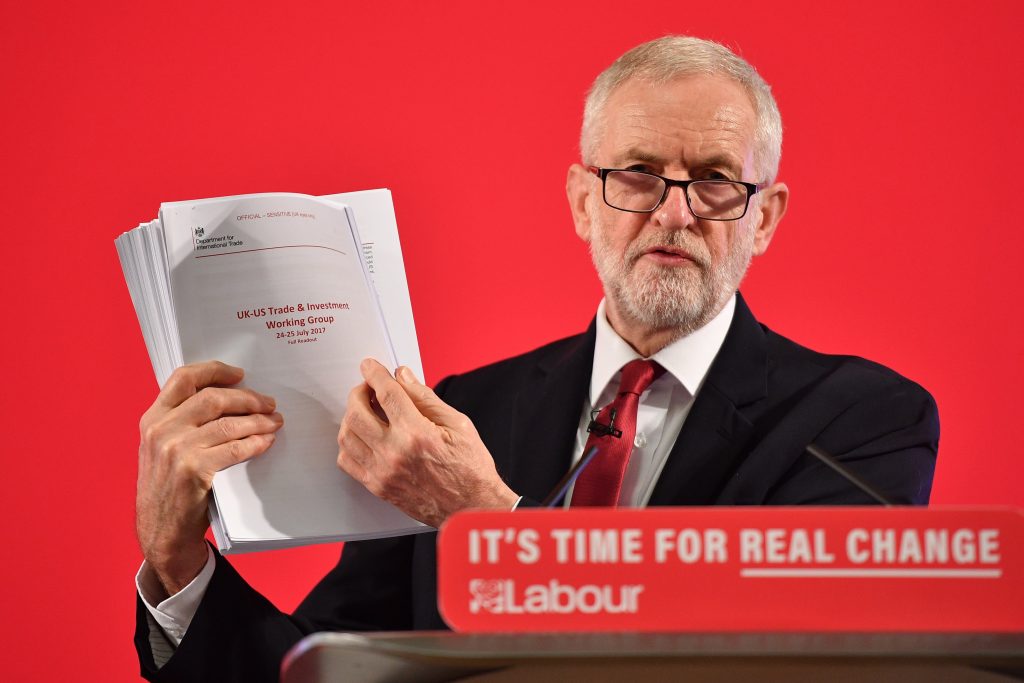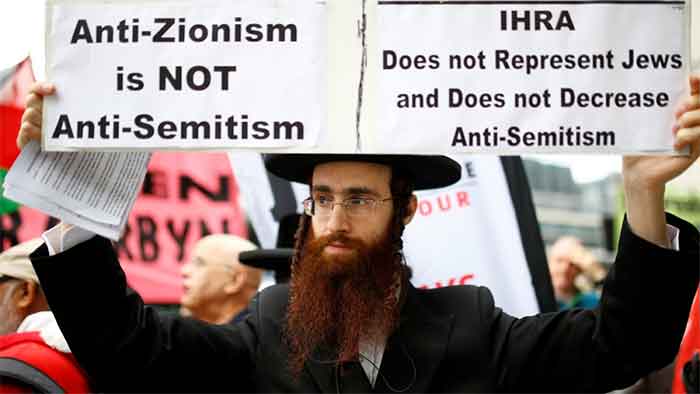
Whatever stance taken by followers of the British Labour Party on the subject of antisemitism within its ranks, the suspension of Jeremy Corbyn must be seen as an exercise of muscle on the part of Sir Keir Starmer. Since coming to the leadership, Starmer’s popularity has risen, catching up to that of Prime Minister Boris Johnson. But Corbyn and the Corbynistas lingered, irritating reminders of a previous revolution of the left to be subjugated and marginalised. The report on antisemitism in the British Labour Party by the Equality and Human Rights Commission presented a chance.
In July 2019, the EHRC announced that it was investigating the party “after receiving a number of complaints of allegations of antisemitism within the Party.” It proceeded to look at whether the Party had committed unlawful acts; handled complaints of antisemitism “in a lawful, efficient and effective way”; had adequate complaints handling, investigatory and disciplinary processes that were efficient and effective, “including whether appropriate sanctions have been or could be applied”; and whether steps were taken by the Party “to implement the recommendations made in the Chakrabarti, Royall and Home Affairs Committee Reports.”
The EHRC report released on October 29 identified, in the words of the Interim Chair, Caroline Waters, “specific examples of harassment, discrimination and political interference in our evidence” and “a lack of leadership within the Labour Party on these issues, which is hard to reconcile with its stated commitment to a zero-tolerance approach to antisemitism.” The executive summary pointed to “serious failings in leadership and an adequate process for handling antisemitism complaints” across the Party”, including “multiple failures in the systems it uses to resolve them.” Three breaches of the Equality Act were identified, covering political interference in complaints of antisemitism complaints; the inadequate provision of training to those handling such complaints and cases of harassment.
The report identifies two specific instances of harassment against its members on antisemitic grounds: former London Mayor Ken Livingstone and local Rossendale Borough Councillor Pam Bromley. Livingstone was singled out for his claims in 2016 that attacks on MP Naz Shah for purported antisemitic social media posts were “part of a smear campaign by ‘the Israel Jewish lobby’ to stigmatise critics of Israel as antisemitic” designed to “undermine and disrupt the leadership of Jeremy Corbyn MP.” Bromley, for her part, was taken to task for using antisemitic tropes: the Jewish conspiracy, manipulating political processes and being a “fifth column.”
Despite these purplish standouts, the EHRC, while considering a “significant number” of other complaints demonstrating “what we considered to be antisemitic conduct”, found insufficient evidence showing that the Labour Party had been legally responsible or the conduct; that it was from an “ordinary” member of the Party, for which it could not be responsible for under equality law; and insufficient evidence that “the harmful effect of the conduct” had outweighed “the freedom of the expression rights of the individual concerned.”
In responding to the report, Corbyn accepted that, “Jewish members of our party and the wider community were right to expect us to deal with it,” expressing “regret that it took longer to deliver that change than it should.” Those claiming there was no antisemitism in the Labour Party were wrong. “Of course there is, as there is throughout society, and sometimes it is voiced by people who think of themselves as on the left.”
He pointed out that many of the processes scrutinised and criticised as wanting in the report were already there prior to his leadership. Firmer measures were put in place after 2018, in the face of party bureaucracy. But a large, and for his opponents gaping opening, was left with his insistence that “the scale of the problem was dramatically overstated for political reasons by our opponents inside and outside the party, as well as by much of the media.” That “combination … hurt Jewish people and must never be repeated.”
As Ronan Burtenshaw, editor of Tribune, is right to note, Corbyn has some merit in making reference to exaggeration for political purposes. Individual complainants had, in some cases, been responsible for a veritable tsunami of grievance, most unfounded. There were unsubstantiated statements from various MPs, including Margaret Hodge, who herself filed a hundred antisemitism complaints, eighty of which involved people with no connection with Labour or its party structures.
With factional considerations now lit, Labour Party general secretary David Evans, a close ally of Starmer, suspended Corbyn within a matter of hours, despite being unable to say which party rule had been breached. “I was very disappointed in Jeremy Corbyn’s statement,” claimed the Labour leader, “and appropriate action has been taken, which I fully support.” A satisfied Hodge felt that suspending Corbyn was the “right thing decision” following his “shameful reaction to the EHRC report.”
Evans assumed the mantle as the torchbearer of the right faction of the party, replacing Corbyn’s ally Jennie Formby in May. Spokesman of Labour Against Antisemitism Euan Philips had words of cautious praise for the appointment at the time: not only was it a relief to have a figure from “outside the hard left” in that role, Evans had “a huge job to tackle institutional anti-Jewish racism in the party”.
With such sentiments in mind, both Evans and Starmer have essentially manoeuvred the party into a position where the mere hint of scepticism about the scale of antisemitism within Labour will be excoriated and expunged. As Starmer explained on BBC Radio 4’s Today programme, “I made it clear the Labour Party I lead will not tolerate antisemitism, neither will it tolerate the argument that denies or minimises antisemitism in the Labour Party on the basis that it’s exaggerated or a factional row.” This is despite the acceptance by the EHRC that Article 10 of the European Convention of Human Rights protecting freedom of expression “will protect Labour Party members who … make legitimate criticisms of the Israeli government, or express their opinions on internal Party matters, such as the scale of antisemitism within the Party, based on their own experience and within the law.”
While the BBC’s Laura Kuenssberg saw no “deliberately designed collision between the current party boss and his predecessor” it is hard to ignore the alignment of the stars. Starmer wants to cement his credentials and iron out the creases; Corbyn, with his obstinacy and loyal defenders, present potential future obstacles to his plans. A civil war beckons, with antisemitism fashioned as factional spear tips.
Dr. Binoy Kampmark was a Commonwealth Scholar at Selwyn College, Cambridge. He lectures at RMIT University, Melbourne. Email: [email protected]
SIGN UP FOR COUNTERCURRENTS DAILY NEWSLETTER
















































